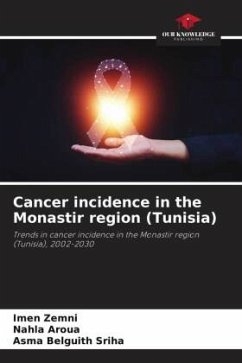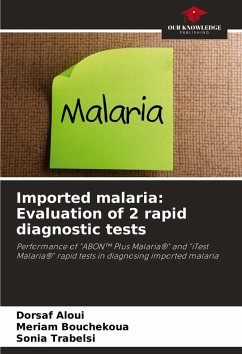
Telemedicine in psychiatry
issues and prospects for an emerging medical practice in Tunisia
Versandkostenfrei!
Versandfertig in 6-10 Tagen
29,99 €
inkl. MwSt.

PAYBACK Punkte
15 °P sammeln!
Today, telemedicine is redefining medical paradigms, improving access to mental health care and establishing itself as a central topic in international debates since the Covid-19 pandemic. In North Africa and the MENA region, its implementation faces complex challenges, particularly in terms of infrastructure, digital accessibility and regulation. In Tunisia, the legal framework for telemedicine was recently defined by Presidential Decree-Law no. 318/2022 of April 8, published in the Journal Officiel de la République Tunisienne. Psychiatry is particularly concerned by this development. The ob...
Today, telemedicine is redefining medical paradigms, improving access to mental health care and establishing itself as a central topic in international debates since the Covid-19 pandemic. In North Africa and the MENA region, its implementation faces complex challenges, particularly in terms of infrastructure, digital accessibility and regulation. In Tunisia, the legal framework for telemedicine was recently defined by Presidential Decree-Law no. 318/2022 of April 8, published in the Journal Officiel de la République Tunisienne. Psychiatry is particularly concerned by this development. The objectives of this study were to: Assess Tunisian psychiatrists' knowledge, perception and acceptance of telemedicine. Analyze the ethical, medico-legal, administrative and socio-cultural issues associated with the application of telemedicine in psychiatry. A well-thought-out integration of telemedicine could considerably strengthen and optimize psychiatric care services in Tunisia.














